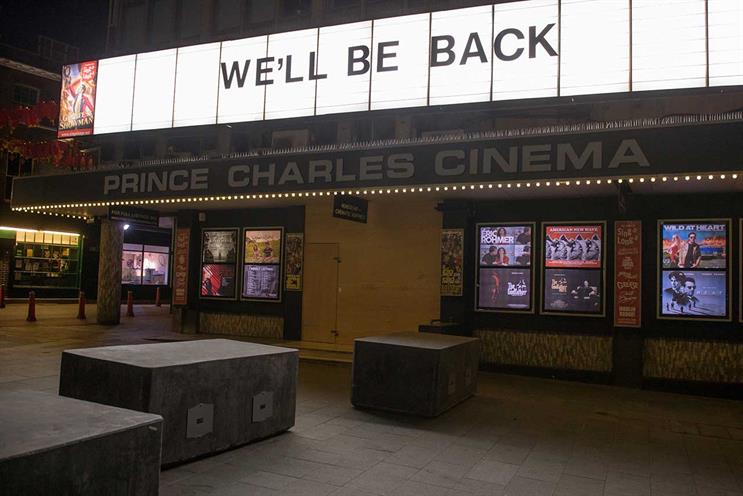It has been three months since the UK went into lockdown and the media industry has seen unimaginable upheaval – with cinema one of the hardest areas hit.
Film plays an incredibly powerful role in society; it’s a medium that holds huge cultural currency.
One of my favourite feelings is the sense of anticipation you get in a cinema when the lights go down. The popcorn rustling, the whole room holding its breath before the film starts.
It is something we are all familiar with and is intensely nostalgic. We remember visiting to see an adventure film as children; then the first time going without an adult; and the time we watched a horror film through our fingers. The darkened aisles of the cinema are a truly magical place.
Cinema has certainly taken on a different significance in the past few months. Perhaps film is even more crucial to our cultural hunger now as we remain at home and seek to watch something that will help us escape temporarily into another world.
The demand for film content during the UK’s lockdown has led to record-breaking online streaming subscription and viewing figures, with studios such as Universal Pictures even making a handful of its upcoming film releases available on demand in light of the cinema closures.
Some have questioned whether this could set a precedent for cinema’s fate after lockdown. But I firmly believe that once we finally overcome this dark period, we’ll still value the big screen experience – in fact, even more than ever before.
We all know that a huge advantage for streaming – especially in the current climate – is its convenience. It requires minimum effort (a few clicks) and you can watch content wherever and whenever you want on demand.
However, this is just one of two ways that viewers can experience a film. In fact, the Cinema Advertising Association’s annual Film Audience Measurement and Evaluation data, released earlier this year, reveals that consumers who stream content are more likely to be avid cinemagoers. Both experiences go hand in hand.
Moreover, in the same survey, more than two-thirds (69%) with access to streaming services said that the cinema experience could not be replicated by online services.
This reinforces the unique advantage of cinema, in which amazing stories are told with impact and on a much bigger scale.
Combine this with cinema being one of the only immersive, distraction-free viewing environments and it’s clear that cinema is a pillar of culture and shared joy for so many of us.
For advertisers, it is still one of the single most premium and brand-safe platforms out there and widely proven to be hugely impactful for brand campaigns, thanks to the cinematic scale of storytelling and the fact that it commands the full attention of its viewers.
There are still many difficult days to overcome, although there is some hope as the government has confirmed this week that cinemas in England can reopen on 4 July.
Recent US research from National CineMedia shows that audiences are excited to return to the big screen: 95% miss going to the cinema, 92% look forward to cinemas reopening again and 86% prefer watching a movie in a cinema over watching at home.
The UK Cinema Association is co-ordinating efforts and defining best practice around making cinemas safe.
We can’t predict what will change in the coming weeks and months. One thing is for certain, though: we’ll all be so grateful when we do come out the other end of this uniquely strange time, blinking into the light. And then straight back into the dark – to the wonderful, timeless silver screen.
Kathryn Jacob is chief executive of Pearl & Dean
Picture: Getty Images


